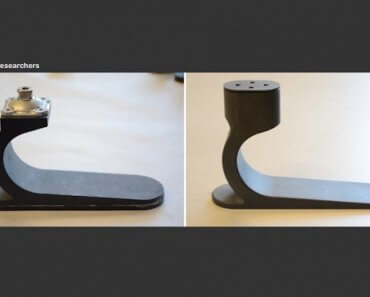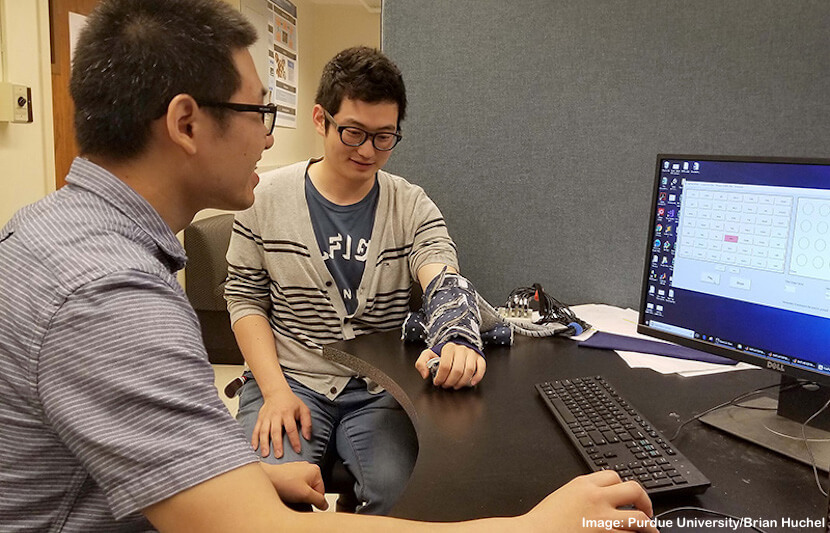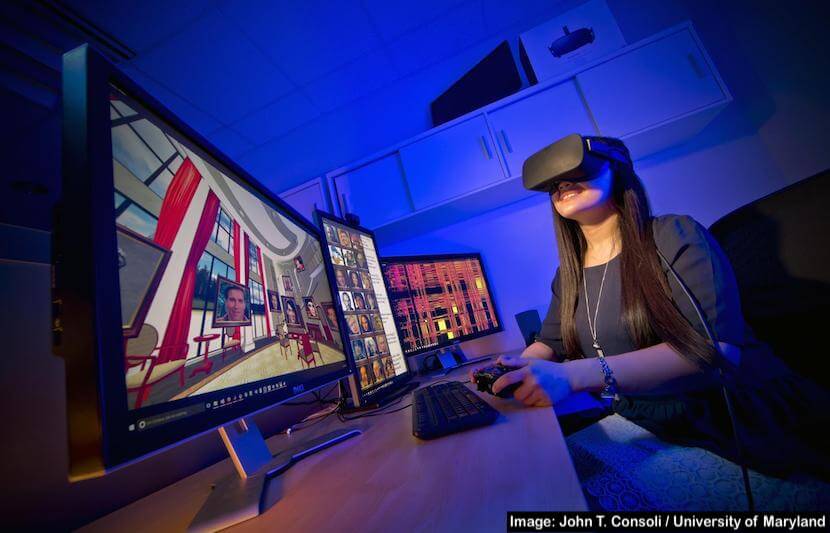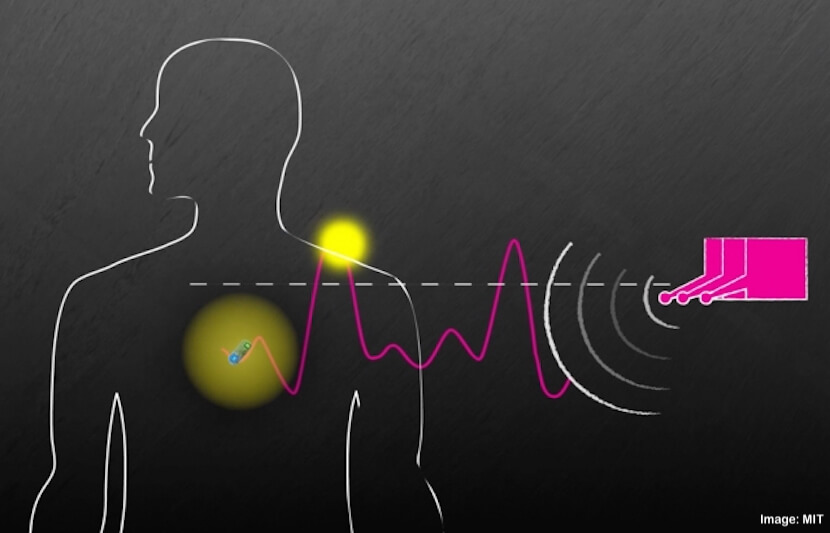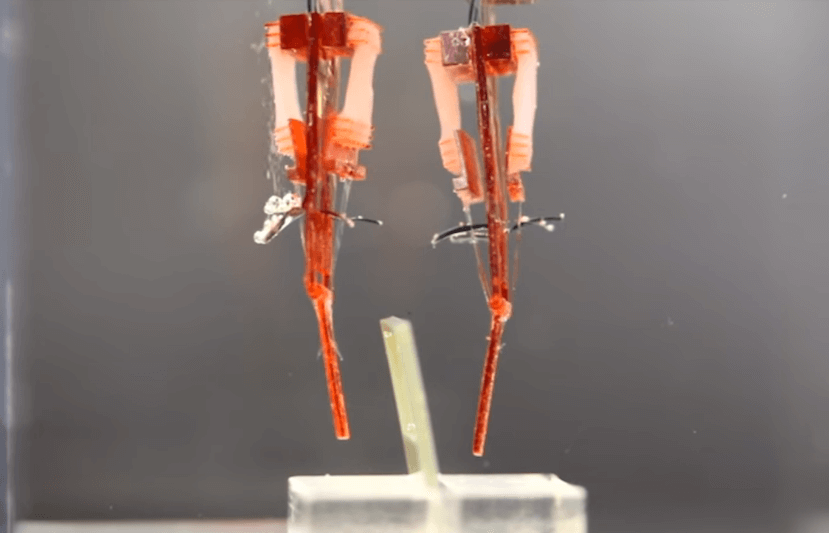-
Why Smaller Class Sizes Close Performance Gaps in Science Courses
Smaller class sizes may reduce performance gaps in science courses, according to a new study from The University of Minnesota. The research suggests that some performance gap issues could be amended with improved policy development and legislative action at the university level. The research is published in the journal BioScience. Examining students To conduct the… Read More
-
Revolutionary Low-Cost Prosthetic Foot Allows Amputees to Walk Naturally
Prosthetic limb technology has advanced greatly in recent years, but new designs can cost tens of thousands of dollars, leaving many amputees without affordable products. Now, engineers at MIT have developed a low-cost, passive prosthetic foot that can be customized to fit the individual and mimic an able-bodied walk. “[Walking] is something so core… Read More
-
Engineers Find Way to Send and Receive Messages Through The Skin
Instead of receiving information via smartphone, messages could one day be sent and read through a person’s skin, according to new research. Engineers at Purdue University, working with MIT and Facebook researchers, have developed a technique that can teach people to interpret nonverbal messages through an arm sleeve that sends haptic signals, such as a… Read More
-
The United Effort to Save the World’s Coral Reefs
Australia’s Great Barrier Reef stretches over hundreds of thousands of square miles, encompassing a vibrant ecosystem of brightly colored corals and a vast pool of marine life. But, a recent study found that 30 percent of its corals died during a nine-month heat wave from March to November 2016. This discovery highlights the continuing threat… Read More
-
Why ‘Develop Your Passion’ Is Better Advice Than ‘Find Your Passion’
The seemingly well-intended advice to “find your passion” may carry hidden implications and result in negative consequences, according to a new study from Stanford University. The research team — Paul O’Keefe, a former postdoctoral fellow at Stanford and now an assistant professor of psychology at Yale Nus College in Singapore; Carol Dweck, a professor of… Read More
-
Mixing Online and In-Class Learning Can Boost Performance
Having coursework presented both online and in-person can make students less likely to withdraw from a class or experience test anxiety, a new study suggests. Researchers at the University of Iowa analyzed the way students perceived the delivery of content in a classroom and found that having a “blended” course format, in which content is… Read More
-
More Women in Government Leads to Less Corruption, Study Finds
Countries with a greater representation of women in government are less corrupt, according to researchers Chandan Jha of Le Moyne College and Sudipta Sarangi of Virginia Tech. In a recent study on how women impact corruption in both governmental roles and the labor force, they found that corruption is lower in places where women hold… Read More
-
Shark Skin-Inspired Surface Can Attack Bacteria
While the words “shark” and “attack” don’t usually bode well in the same sentence, new research shows that when it comes to fighting bacteria, they can be a positive pairing. By imitating the natural properties of shark skin, scientists from UMass Amherst have improved a new type of surface coating infused with antimicrobial agents that… Read More
-
The Best Way to Take Notes: Laptop vs. Notebook
In today’s tech-savvy world, taking notes doesn’t just mean using a pen and paper. In fact, the next time you look around a classroom, you’ll probably notice the majority of students typing their notes on laptops. But what’s better — paper or digital? Since both options offer a variety of benefits, it can be difficult… Read More
-
Virtual Reality Can Help You Remember Better
People can remember information better when it is presented through an immersive, virtual reality (VR) experience rather than a two-dimensional platform, a new study suggests. Researchers at the University of Maryland conducted one of the first in-depth studies on the effects of learning through a virtual environment, pointing to the prospect of using VR technology… Read More
-
How Do You Stimulate Desire? Not by Playing Hard to Get, Study Finds
Despite the age-old notion that “playing hard to get” can increase desire in the dating world, a new study suggests that it might be sending the wrong message. Researchers from IDC Herzliya in Israel and the University of Rochester have found that people are more sexually attracted to a romantic partner when they feel certain… Read More
-
Wireless Remote Can Power Devices Inside Human Body
A team of researchers from MIT, Harvard Medical School and Brigham and Women’s Hospital (BWH) has developed a wireless system capable of powering and communicating with devices implanted deep within the human body. These devices could be used to deliver drugs, monitor conditions inside the body, or treat disease by stimulating the brain with electricity… Read More
-
Study Finds Which People Are Prone to Falling for Marketing Scams
When it comes to mass-marketing scams (MMS), people who “see the glass as half-full” are more likely to take the bait, according to a new study. MMS, otherwise known as mass-marketing fraud, is a ploy that uses mass-communication methods, such as telephones, the internet, mass mailings, TV and radio, to receive money or information from… Read More
-
Essential Oils to Be Used as Antibiotics
Applying tea tree oil or other natural plant extracts as a coating for medical devices could prevent millions of bacterial infections each year, according to researchers from James Cook University in Australia. The discovery comes at a time when an increasing number of unplanned surgeries are performed to fight infections caused by biofilm, a thin… Read More
-
Scientists Create Real-Life Cyborg with Living Muscle
While a half-man, half-robot might seem like the epitome of science fiction, it’s a developing reality to a team of researchers at the University of Tokyo. The team has created a method to successfully grow and integrate living muscle into a robotic skeleton that can function for over a week. The result is a human-like… Read More

Natalie Colarossi
-
The Best Way to Take Notes: Laptop vs. Notebook
In today’s tech-savvy world, taking notes doesn’t just mean using a pen and paper. In fact, the next time you look around a classroom, you’ll probably notice the majority of students typing their notes on laptops. But what’s better — paper or digital? Since both options offer a variety of benefits, it can be difficult… Read More


